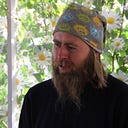SHAKIN’ and Game|Changers — Gardening Learning Ecosystems in Between Steady University and Industry Structures
Thanks to Visnja Kisic and Goran Tomka (Forest University) in 2023 I’ve participated in the “Sharing subaltern knowledge through international cultural collaborations” (SHAKIN’) project that is a European collaboration supported by the EU’s Erasmus+ program: Strategic Higher Education Partnerships for Innovation. It was initiated in 2020 by the three universities — Lyon 2 (France), University of Arts in Belgrade (Serbia), and Bauhaus-University Weimar (Germany) — and three civil society organizations — Stockholm Museum of Women’s History (Sweden), Le LABA (France), and the Association Independent Cultural Scene of Serbia in Belgrade.
Here is a quote by its key organizers Milena Dragićević Šešić and Sarah Cordonnier:
The meaning of our activities in the fields of arts and culture (including the academy) often gets lost in the way, as well as their living, political, and social relevance. Thus, the SHAKIN’ project looked for ways to make room for invisible, marginalized stories and knowledge in academic spaces, heritage spaces, public spaces, archives or performance venues — where standardization and specialization lead to artificial separations, misunderstandings, and incapacity of hearing each other.
A part of the project was a SHAKIN’ THE CLASSROOM, a toolbox to ‘shake’ the learning and teaching practice with ways to decolonize and diversify the knowledge-sharing processes. I was curious to share for this toolbox my theories and practices of ad-hoc education and research approach, so that’s how I’ve got in. Although my main related experience was with the ad-hoc program ‘Game|Changers’ which is the hightech field and thus far from arts and culture, it was quite clear that the approach and particular practices are universal, so it makes sense to bring them to SHAKIN as single page description.
Actually, here I would quote myself from 2012 from a note introducing Game|Changers ‘Ecosystem and Entrepreneurship’ track:
Entrepreneurship is a new Art. Products and services are new media. New media that transmits value to people. If notable musicians and writers were born just 20 or 30 years ago they wouldn’t write books or play music, they’d do startups, disruptive startsups. As they did disruptive art.
And vice versa, Elon Musk in the times of Leonardo Da Vinci probably would do Leonardo-like things.
So from this point of view all that hightech busineses and open source foundations are subjects for curating and presenting them, as contemporary or metamodern art (meta also as they provide tools for others to be creative).

Further Visnja and Goran shared with me an open call for the SHAKIN conference “In from the margins — Sharing footnotes of subaltern knowledge and practices: Questioning North-South relations and ethics of international collaboration. As it was hosted by the Belgrade University of Arts in June 2023 I dared to apply with two ‘artistic’ sessions:
- a talk “Gardening Learning Ecosystems in Between Steady University and Industry Structures. The Game|Changers Case” — see slides about GameChangers and drafts notes;
- a walk and talk “Ecovillages as Living Labs for Academia and Artists to Pave the Road to Symbyocenic Collaborations” together with Eva Vitorović (Serbian NGO ‘Zeleno doba’) and Igor Polsky (a private school ‘Kompas’ in Montenegro).
Somehow both interventions did happen as a part of quite reach 3-days schedule with the scientific and artistic agenda (see also the conference book of abstracts).
The next step was to write a full article for the post-conference book. So finally the story and approach of the ad-hoc education and research program Game|Changers is published as a long-read scientific article:
‘Ad-hoc Education&Research Approach for ‘Gardening’ Learning Ecosystems’ in ‘Subaltern knowledge in cultural practices: fostering fairness, cooperation and care’ ed. by Milena Dragićević Šešić, Sarah Cordonnier. University of Arts in Belgrade 2024 (p. 265–286).
There I write about the ad-hoc education approach in general and then explain how it was applied to ‘An introduction to the IT Industry’ course that further became a sort of fractal structure with a core team and alumni starting their courses from biotech, digital fabrication (Fablabs), and big data to design, future of education, social entrepreneurship, and enterprise architecture with the last year was dedicated to expanding the ecosystem to Northern Europe with the international unconference in Helsinki in 2013.
Further, I consider how this experience could be applied to deal with multicrisis creating long-term cooperation between universities, ecovillages and other grass-roots ecological and regenerative initiatives, nature reserves, and indigenous people groups by the Symbiocenic Environments Framework.
Acknowledgements
Special thanks to:
- Pavel Luksha (Global Education Futures and University for the Earth) for advocating for the Learning ecosystems vision;
- Andrew Paterson (PixelAche) for long-lasting weaving transdisciplinary and transboundary ‘mycelium’;
- Dmitry Orlov a Game|Changers alumni who supported my stay at the Forest University Residency to work on the article.
Here again, I mention Visnja Kisic and Goran Tomka who supported me on all the stages of participation in SHAKIN (see more about the Forest University that they care for in Andrew’s Rewilding Cultures travel note and the second part of my note on Fruška Gora).
Related posts
- Tutors and Colliders: New Ontology for Education (some perspectives on Game|Changers program from 2013, since that time my views changed a lot)
- Entrepreneurship is a New Art. Ecosystems and Curators
- Universities and Climate Resilient Communities in the Western Balkans and the EU (1FUTURE project and beyond)
- Transformational Eco-Tourism and Art of Symbiocenic Living in Serbia
- Symbiocenic Environments
- School, Home School, Unschool, The Last School
- Simple Living Studies. 2015–2020
- My Agro-digital Nomadism in the Balkans (for the ‘Politika’ Magazine)
- From Ecovillages and Communities to Societies and Tribes







